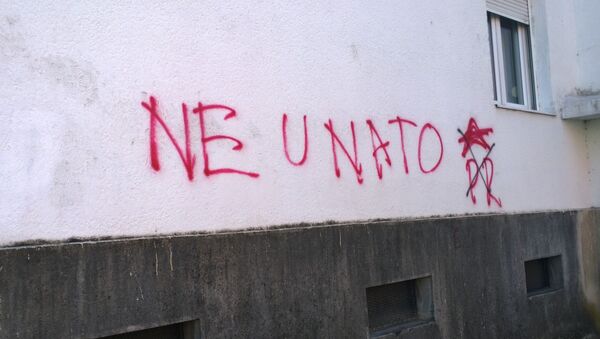Vasily Raksha — The government’s campaign uses street billboards depicting politicians and well-known persons with the motto “Partnership for a secure future”. This is a form of PR where a significant figure “transfers” the veneer of credibility to the idea he or she promotes – the success of such strategy depends on how trustworthy the figure is.
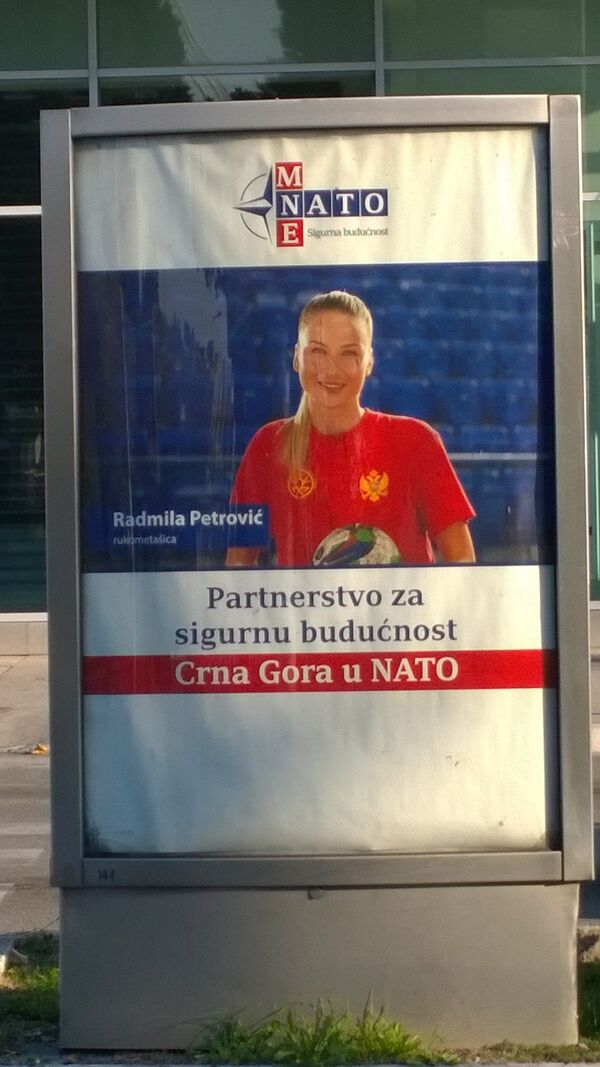
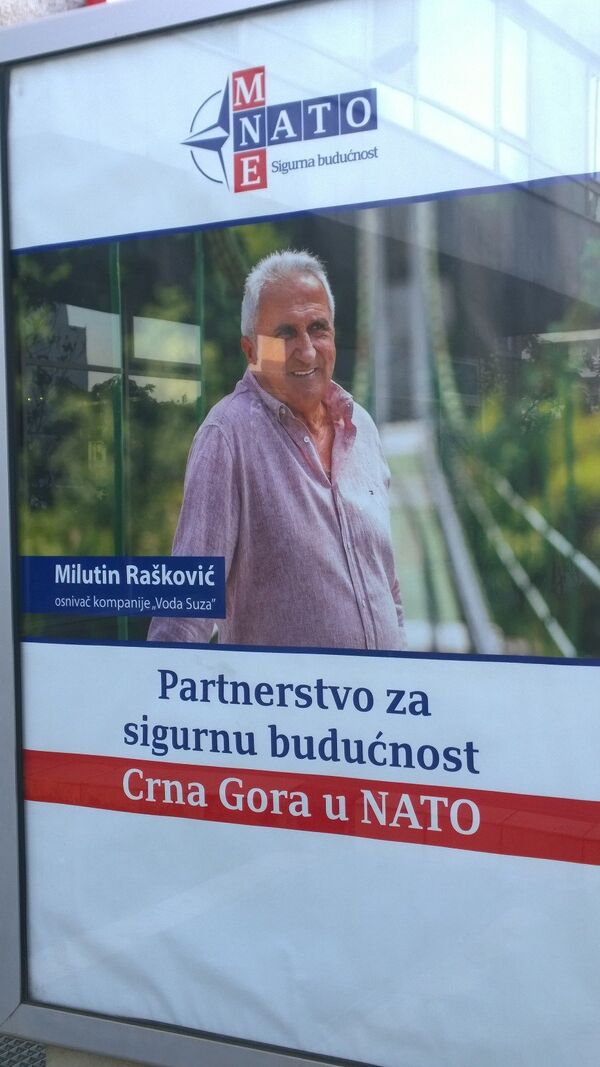
Ordinary citizens demonstrated their rejection of this initiative by painting graffiti on the streets of the capital. Their main message is that NATO’s crime of mercilessly bombing Yugoslavia for 78 days in 1999 will never be forgotten. The very idea of becoming a satellite of the organization reawakens painful memories: the alliance dropped 15,000 tons of depleted uranium "dirty bombs" on Yugoslavia, causing a dramatic surge in cancer rates, especially among children.
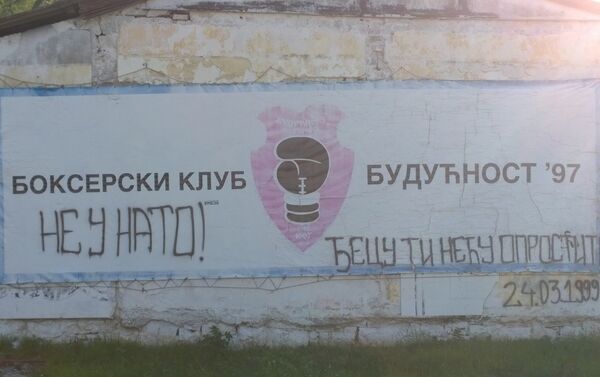
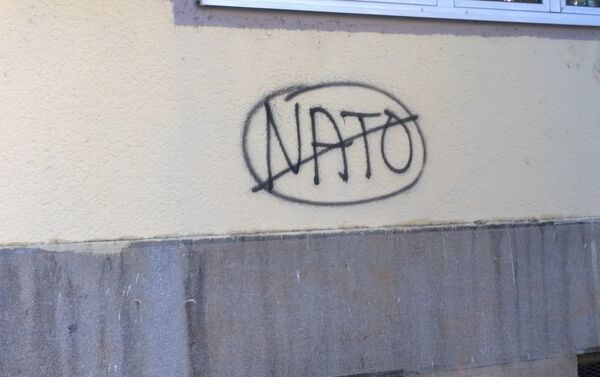
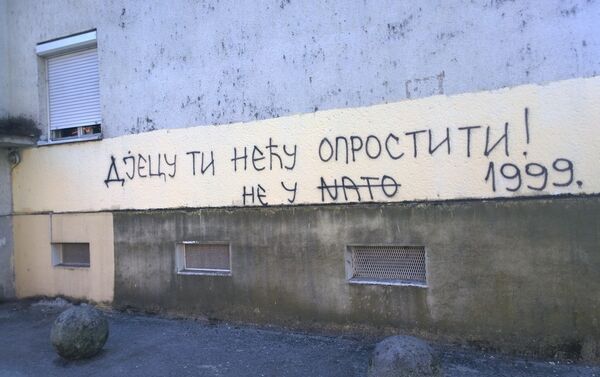
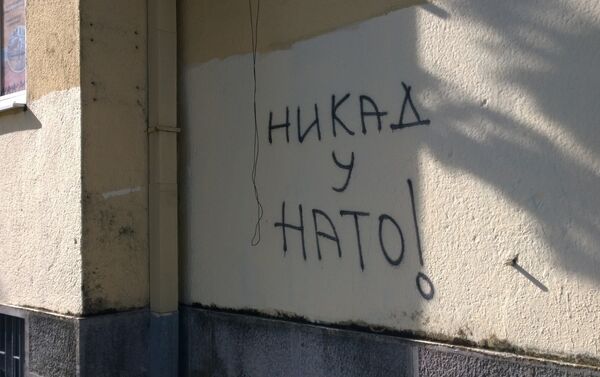
One salient point is that you cannot find pro-NATO graffiti. This fact speaks for itself, showing the real attitude of the Montenegrin population toward the campaign.
The well-financed promotion of the alliance is being conducted by a team which demonizes Russia, which ordinary Montenegrin citizens regard as the country's historic defender and even refer to as their homeland's “mother”. It's commonly believed that without Russia's help, Montenegro would have lost its statehood.
The leadership has attempted to drive a spike between the two kindred nations and arouse a sentiment of alienation in the population, even resorting to the falsification of history. For example, a group of historians attempted to change the message of Saint Petar I of Montenegro, who is revered as both a spiritual and a military leader and considered to be the father of Montenegro’s statehood. He lived in the 18th and 19th centuries and left a testament calling on every Montenegrin to stay by the side of “Mother and Defender Russia”.
It is important to underscore that the demonization of Russia, which is currently being promoted by state authorities, is being rejected by ordinary Montenegrins, who feel embarrassed by the actions of the country's leadership.
In 2015, the Montenegrin anti-war movement “No to war – No to NATO” exhibited a banner commemorating the 70th anniversary of the Soviet Union’s victory over Nazism, triggering hysteria in the media.
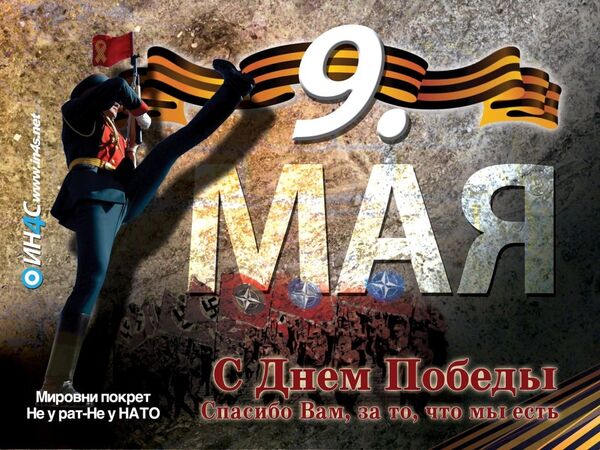
Their message was countered by “Montenegrin patriots” who said that “a banana in the hand is better than a Russian boot on the neck”.
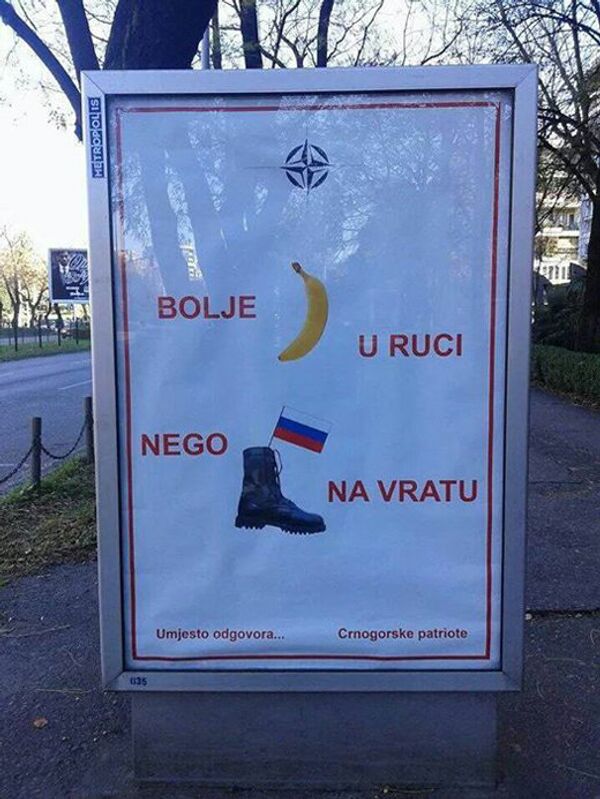
The movement struck back, tit for tat.
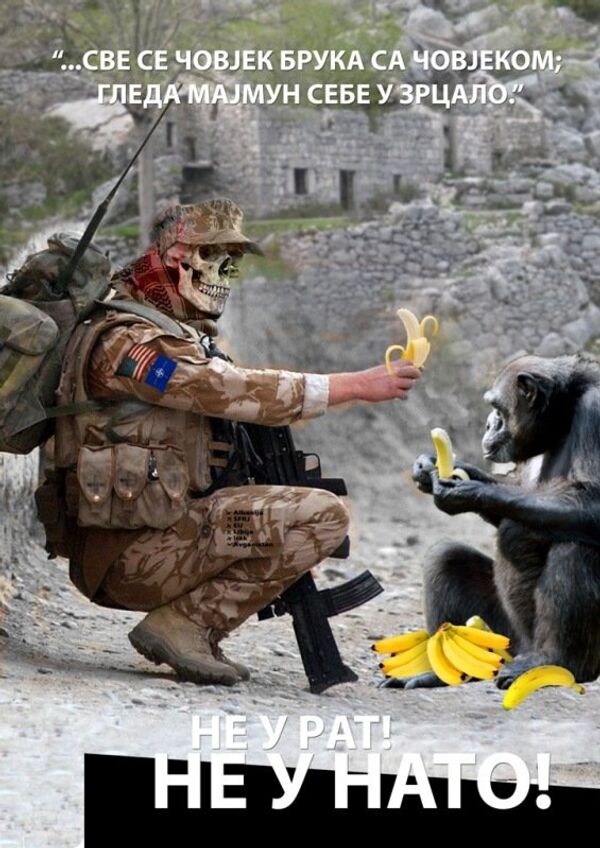
In April 2015 Montenegro held its first 'NATO Day'.
Karadag'da ilk defa duzenlenen 'NATO Gunu', Podgorica'dan pic.twitter.com/d43SVjS5wT
— rüştü şenyüz (@rustusnyz) April 4, 2015
On September 15, the Montenegrin NGO “Movement for neutrality” staged a performance in front of the country's parliament.
Depicting an ISIL execution scene, the activist warned that the small country of about 600,000 people could become a pawn in the geopolitical games of major powers, and reminded everyone of the tragic fate of Croatian Tomislav Salopek, who was beheaded by the terrorists, telling their leaders' potential allies:
“Where did you get the idea to meddle in the battles at the other end of the planet? Where did you get the idea to impose democracy in our country? For years and centuries, we had no territorial disputes with you."
They then addressed the people of the country:
"And you want the same kind of democracy? You want to be a part of the same story? Didn’t you feel it on your skin in 1999? You felt the NATO bombs democracy in Montenegro. Is it now your turn to bomb us? Montenegro, you will work to destabilize the countries you know nothing about, and you are going to pay the price.
This citizen won’t be killed by us. He will be killed by the politicians who are advocating the story you don’t want to be a part of.”
And just recently, “No to war – No to NATO” mimicked the style of governmental pro-NATO banners and placed their own on the highway between Budva and Tivat.

It lampooned the government's motto, changing it to “Partnership for an insecure future”. The banner depicts the Cathedral of the Resurrection of Christ in Podgorica that bore the brunt of the state police’s violent reprisal against peaceful demonstrators on October 24. When anti-government protesters gathered near the cathedral preparing to get on their buses and return to Niksic, the police showered them with flash grenades and tear gas, damaging the church as well.
“This is the grim future we are facing if Montenegro joins NATO”, the authors said.
The ideological war in Montenegro continues. However, the very fact that the anti-NATO campaigns have grassroots origins whereas pro-NATO ideas have been instilled by the government speaks for itself.

